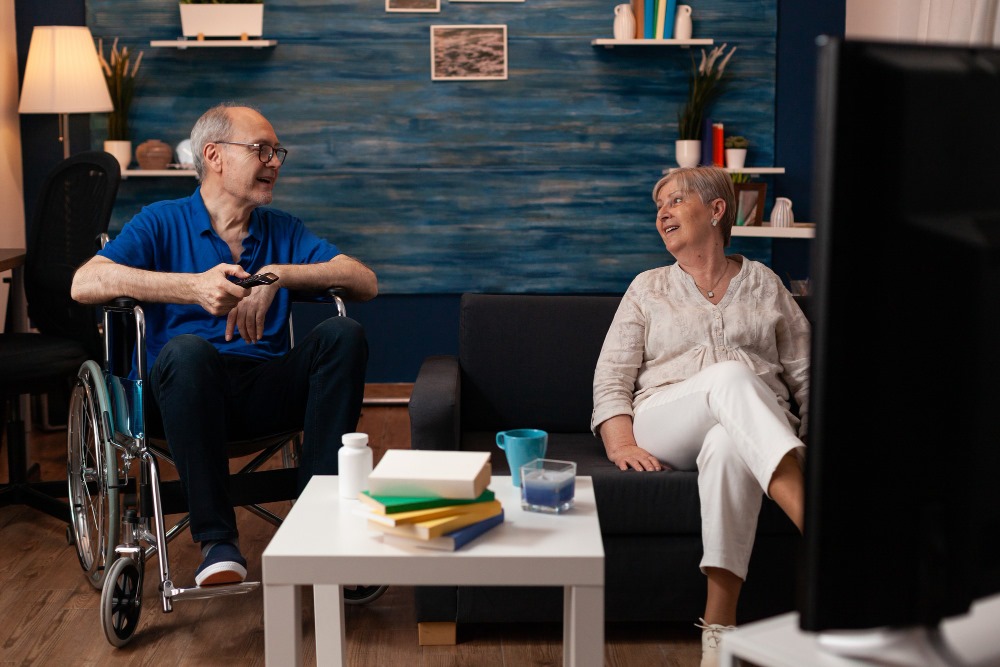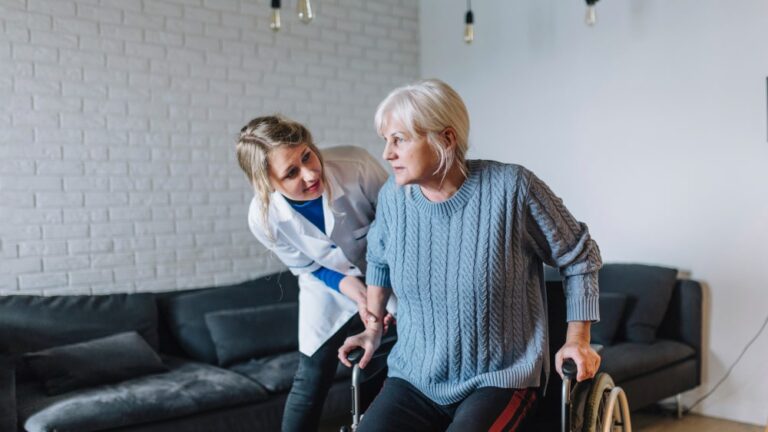Elder care for visually impaired seniors demands specialized attention and care to ensure their safety, well-being, and quality of life. From The Heart Home Care acknowledges the unique challenges faced by seniors with visual impairments and is dedicated to providing comprehensive strategies to enhance their daily living. In this guide, we offer a wealth of information and insights for caregivers and family members seeking to optimize the care for their visually impaired loved ones.
Table of Contents
- Elder Care Strategies
- Understanding the Challenges Faced by Visually Impaired Seniors
- Creating a Safe and Accessible Living Environment
- Promoting Physical and Mental Well-being
- Nurturing Emotional Support and Social Connections
- Providing Specialized Care and Assistance
- Offering Emotional and Practical Guidance for Families
- Conclusion
Elder Care Strategies
Elder care strategies are crucial to ensuring the physical and emotional well-being of visually impaired seniors. Here are some effective strategies and tips to help you provide the best care possible for your loved ones.
Understanding the Challenges Faced by Visually Impaired Seniors
A thorough understanding of the challenges that visually impaired seniors encounter is fundamental in providing effective care. Addressing their specific needs, such as mobility, safety, and mental well-being, forms the cornerstone of holistic elder care.
Learn More: Benefits of Elderly Living at Home
Creating a Safe and Accessible Living Environment
- Optimizing Home Environment for Safety: Implementing necessary modifications in the living space can significantly enhance the safety and accessibility for visually impaired seniors. Installing handrails, bright lighting, and tactile indicators can help create a secure living environment.
- Utilizing Assistive Devices and Technologies: Leveraging assistive devices like talking watches, magnifiers, and voice-enabled devices can empower visually impaired seniors to perform daily tasks independently.
Promoting Physical and Mental Well-being
- Encouraging Regular Exercise and Physical Activities: Engaging in regular physical activities tailored to the seniors’ abilities can improve their mobility, balance, and overall well-being.
- Stimulating Cognitive Functions: Involving visually impaired seniors in mental activities, such as reading Braille, solving puzzles, and participating in sensory stimulation exercises, can help maintain cognitive functions and mental acuity.
Learn More: Role of Nutrition and Diet in Maintaining Mental and Physical Health for Seniors
Nurturing Emotional Support and Social Connections
- Fostering a Supportive Caregiver Relationship: Building a compassionate and understanding relationship with visually impaired seniors is essential for fostering trust and emotional well-being.
- Facilitating Social Engagement: Encouraging participation in social gatherings, community events, and support groups can prevent feelings of isolation and promote a sense of belonging.
Providing Specialized Care and Assistance
- Offering Assistance with Daily Living Activities: Assisting with daily tasks such as meal preparation, medication management, and personal grooming is crucial in ensuring the seniors’ comfort and convenience.
- Arranging Transportation Services: Providing reliable transportation services or arranging accessible transportation options enables visually impaired seniors to maintain their independence and attend appointments or social engagements.
Offering Emotional and Practical Guidance for Families
- Educating Families about Visual Impairment: Providing families with comprehensive information about the challenges and needs of visually impaired seniors can facilitate a supportive and understanding environment at home.
- Providing Resources and Support for Caregivers: Equipping caregivers with the necessary resources, training, and emotional support can alleviate the challenges associated with providing care for visually impaired seniors.
Learn More: How can home care help improve the mental health of seniors?
Conclusion
Caring for visually impaired seniors demands a compassionate and proactive approach that addresses their unique needs and challenges. By implementing tailored strategies and fostering a supportive environment, caregivers can enhance the overall well-being and quality of life for their visually impaired loved ones. From The Heart Home Care remains committed to providing valuable support and guidance for families navigating the complexities of elder care for visually impaired seniors.







